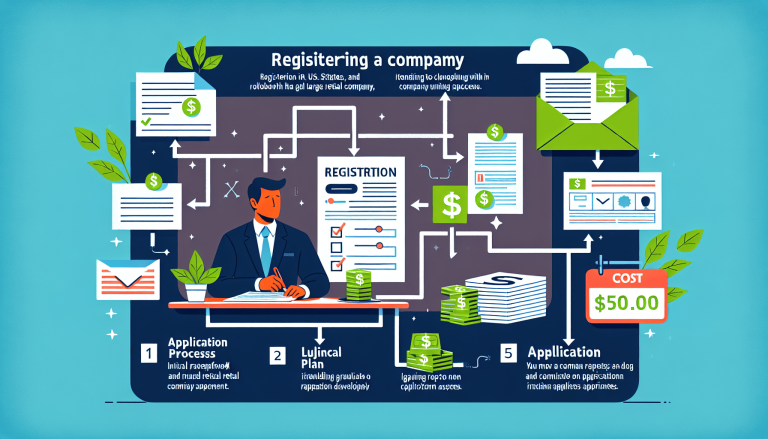What should you do if you experience an Amazon outage right before Prime Day or another major sales event? In this guest article, Chris McCabe shares his experience with Amazon emergency calls.
No one wants to face a work stoppage during Prime Day, Amazon’s mid-year sales promotion.
Most brand owners feel exactly the same pressure to fix ASINs or delete accounts as they did in the fourth quarter, and some of that annoyance can lead to errors in appeals that can undermine their chances of recovery.
If Amazon suspends the ASIN of your best-selling product, or worse, your entire account right before Prime Day, the natural, albeit hasty, reaction is to start filing a plan of action (POA), whether or not you’ve been asked to do so, or don’t have the right information to put one together.
Typically, any hasty request will result in a rejection: Amazon will tell you that you didn’t provide “sufficient information” to renew your ASIN or account, without offering any details as to why. Remember, Amazon only needs one good reason to deny an appeal, and a poorly worded document gives it an easy opportunity to do so.
Since this mistake is fairly common among all of our potential customers, and since it can happen to just about anyone, I’m offering tips on how to manage urgent appeals during Prime Day and other peak selling seasons. Keep reading to learn more.
Appealing an Amazon suspension during Prime Day or Q4
Major events like Prime Day or Q4 can turn an Amazon appeal into an emergency for your business. Here’s what you need to know:
1. Understand the common reasons
 Prime Day can compound the typical reasons for account suspensions, including sudden spikes in order volume, increased customer complaints, and increased scrutiny for regulatory violations. Knowing these reasons can help you mitigate risks ahead of time or even prepare an appeal if you’ve had issues in the past. Being prepared is essential.
Prime Day can compound the typical reasons for account suspensions, including sudden spikes in order volume, increased customer complaints, and increased scrutiny for regulatory violations. Knowing these reasons can help you mitigate risks ahead of time or even prepare an appeal if you’ve had issues in the past. Being prepared is essential.
According to Amazon’s policy page, common suspensions include policy violations, poor performance, and product authenticity issues.
2- Be prepared to file a plan of action (POA) for an Amazon appeal
A compelling POA is the cornerstone of a successful appeal – if Amazon requires one and specifically requests one.
If you’re only going to resolve the issue by filing an appeal with a POA, it should clearly define and analyze every root cause of the suspension. This means not just telling a story about “what went wrong” – that’s not enough.
You need to be specific about what operational lapses or failures occurred and at what level. When you outline the corrective actions taken, show how you implemented those solutions and explain why and how they will work. Be meticulous when explaining how you fixed the problem, because otherwise Amazon won’t be sure it won’t happen again. In that case, your POA will be rejected.
Related articles: Amazon’s competitor sabotage: What to watch out for in the fourth quarter
3. Write unique, customized content! No templates!
Amazon’s Seller Relations team reviews appeals and looks for specific actions taken to correct problems and/or evidence of compliance with Amazon’s policies.
When your account or ASIN is suspended, focus on filing a concise, factual, and solution-oriented appeal. If you cite the top three actions you took to correct the situation and prevent it from happening again, use bullet points that are unambiguous – if your information doesn’t address the real reasons for Amazon’s actions, the team won’t read it.
4. Only file an appeal with Amazon for a good reason
Not all escalations are created equal. Avoid the temptation to inundate Amazon’s senior management with “help us” emails that are unhelpful and similar. Instead, act strategically by requesting verification from a senior investigator or seller manager. If you’re writing a letter to an Amazon executive, ask to have a “direct subordinate” do it.
This will help ensure that your revised submission gets the attention it deserves, rather than being rejected from the doorstep.
Refer to Amazon’s escalation process to understand when and how to properly escalate an appeal. Escalation is not the same as in years past. It’s a moving target.
Consider using an approach such as:
“Dear Amazon Marketplace Management,
We request that you acknowledge receipt of our appeal as we have not received any updates on the progress of our account recovery.
We are losing $$$ a day while this is going on and have followed all the procedures outlined by your teams, without seeing any indication that our appeal will be answered in a few days rather than weeks. We would like to escalate this issue to a manager or sales team leader for further action. Thank you.”
Include in the letter highlights of the proactive measures you have implemented, showing how they are already working well and showing improvement.
5. Documentation and evidence
No appeal that lacks a robust supply chain or documentation of compliance will be successful. Provide clear evidence of your supplier’s website and proof that they produce the types of products you sell, ideally with examples of those products on the website itself. Accurate and detailed documentation will support your appeal and convince Amazon that you have high standards of performance.
Make sure that all documentation meets Amazon’s invoicing requirements and includes essential data such as vendor information, product descriptions, and quantities.
Need more help?
Enlist someone who knows the business inside and out. Don’t hire a newbie or a casual visitor to the field of Amazon referral strategy. If a sales interruption event happens the day before or during Prime Day, you won’t have time to take any chances.
Avoid common mistakes like copying and pasting generic appeal templates or overloading your appeal with unnecessary information. Each Amazon appeal should be tailored to your specific situation, focusing on the most important details. Make sure your message is well organized and easy to read, as clarity can have a significant impact on its effectiveness.
Amazon emphasizes the importance of customizing your appeal to address specific issues and ensuring that all information is relevant and clearly stated.
If you are unsure about the status of your appeal or even the entire escalation process, investing in expert help will be the right decision.
Emergency listings or account suspensions, which occur anytime around or during Prime Day, require a combination of preparedness, strategic thinking, and clear communication. By following these tips, you can protect your business during Prime Day while maximizing sales opportunities and minimizing risk. The perfect balance will make every peak sales period easier!






